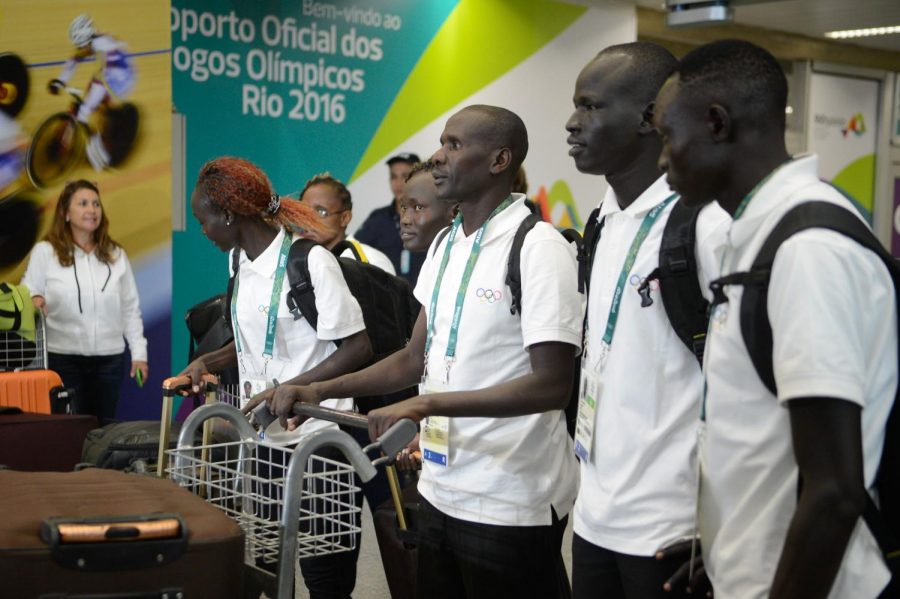Athletic Outreach Benefits Refugee Community
Members of the Refugee Olympic Team in Rio before the games began for the Summer Olympics in 2016.
November 6, 2017
Amid a worldwide refugee crisis, the athletic community has undertaken numerous initiatives to improve the lives of citizens living in refugee communities through sports.
ESPN contributing writer Richard Lapchick has created a three-part series highlighting various initiatives that utilize sports to assist refugees internationally. The most notable embodiment of this movement was the Refugee Olympic Team that competed in the 2016 Rio Olympic and Paralympic games. The 10 members of this team were forced to flee their respective countries because of persecution, war and violence. The International Olympic Community offered these individuals the opportunity to train, compete and live as Olympic athletes. Although none of the athletes won medals, they were able to utilize their newfound publicity as a platform to tell their stories and shed light on their devastating refugee experiences while also providing hope for displaced aspiring Olympians in the process.
The international athletic community quickly jumped on board with this movement. In 2016, Pope Francis hosted the Global Summit on Sports at the Service to Humanity, which encouraged athletic associations across the world to participate in campaigns that promoted refugee involvement in sports. Stephane Jaquemet, the UN High Commissioner for Refugees’ regional representative for Southern Europe, spoke at the Summit, saying, “[Involvement in sports] creates a familiar environment in which individuals feel that they belong; it allows connections to those with whom and against whom we play; and it helps to develop a strong sense of self-identity with this growing social cohesion.” The Summit called upon national Olympic committees and major sports teams, using UNHCR and FC Barcelona-sponsored FutbolNet and Sign and Pass initiatives as examples of exemplary sports programs that benefit refugees.
Lapchick cited two noteworthy programs that are serving to aid the displaced people residing in the U.S. In Arizona, soccer team Sporting FC Arizona sponsors a soccer club called Maricopa Mulenge, whose founders and team members are refugees from East Africa. Along with being able to play competitively, the team is also able to continue their education.
Another nonprofit organization, Soccer Without Borders, aids refugee children on a global level, using soccer to help them adjust to their new environment. Additionally, playing the sport may aid these children in making friends and help distract them from the lives they were forced to leave. Soccer Without Borders supports 100 youth refugees in Baltimore, Maryland.
While these teams and organizations understand that the refugee crisis cannot be solved by a few games, they are taking the steps that they can to help better the lives of refugees. Sports are universal and have a widespread influence due to their immense fan base. We should encourage more and more sports teams and athletic associations to harness their influence for the welfare of our world through partnerships and campaigns in support of those who have been driven away from their homes.
A version of this article appeared in the Monday, Nov. 7 print edition. Email Tyler Crews at [email protected].













































































































































